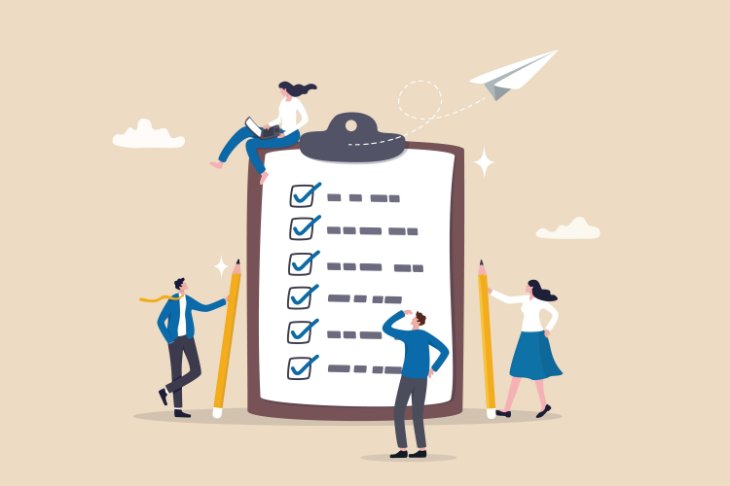The year 2024 introduced several significant changes to employment, work, and health & safety laws. It is essential for Australian businesses to update their HR practices and integrate these legislative changes into their internal policies and procedures. Below is a quick guide to some of the changes expected in 2025:
Right to disconnect
Since 26 August 2024, employees have had the right to disconnect. This means they can ignore work calls and emails outside of their regular working hours when it is reasonable to do so. Starting 26 August 2025, this right will extend to employees of small businesses as well.
The following are some measures you can engage in to ensure you, and your businesses are well placed to comply with this new right:
- Reviewing existing contract templates, specifically in relation to ‘hours of work’ and how it is defined (you might also want to consider how it may impact other associated clauses such as hours of work, overtime and allowances);
- Updating position descriptions to include expectations regarding any out of hours contact that might be reasonably required in the given job or role;
- Checking relevant HR policies have been updated to accurately reflect out of hours contact expectations;
- Make sure employees are adequately trained on this new (potentially misunderstood) workplace right
Wage theft
Starting January 1, 2025, intentionally underpaying workers will be classified as a criminal offence. While genuine mistakes won't be penalised, businesses must take proactive measures to avoid wage theft and ensure compliance. Consider the following steps:
- Conduct regular audits of payroll systems and employee classification;
- Ensure compliance with minimum wage requirements provided in the National Employment Standards, as well as instruments such as modern awards/enterprise agreements;
- Train staff on the new laws, specifically employees involved with payroll and HR functions;
- Maintain detailed records of employee remuneration, as well as develop processes mandating the reporting of overtime;
- Resolve any outstanding queries, complaints or disagreements over award or agreement interpretations.
Casual conversation
Starting February 26, 2025 (or August 26, 2025, for small business employers), casual employees who have been employed for at least six months (12 months for small businesses) can initiate the process to become permanent employees by providing their employer with written notice that they believe they no longer meet the definition of a casual employee. The definition of a casual employee is an employee who receives a casual loading and who has no firm advance commitment to continuing and indefinite work.
Employers must respond within 21 days. If the employee’s notification is accepted by the employer, they will become permanent. However the employer is also able to refuse the notification in some circumstances.
Since changes in the Fair Work Act mean that an employment contract is no longer the sole determinant of an employee's casual employment status, there are a range of steps that employers should consider to manage their casual employment risk:
- Update your employee contracts and policies to reflect the updated definition of a casual employee, and their rights and obligations;
- Review hiring and rostering practices and ensure potential employees are appropriately classified or rostered; and
- Streamline casual conversation requests by creating templates for acceptance and rejection responses and documentation of reasons.
ABLA Toolkits
Sexual Harassment 'Positive Duty' Toolkit
All businesses, regardless of size, must comply with new ‘positive duty’ laws, requiring proactive steps to eliminate sexual harassment at work. Ignorance is no defence - employers must act now to avoid liability and reputational damage. ABLA’s Sexual Harassment ‘Positive Duty’ Toolkit simplifies compliance with a six-step guide, instructional videos, and ready-to-use templates, saving businesses time and ensuring they meet regulatory expectations. This toolkit helps you train employees, conduct risk assessments, and implement effective policies. Don’t wait - take action now to protect your workplace. Contact us for a demonstration.
Psychosocial hazards toolkit
All employers must identify and manage workplace hazards that impact mental health, known as “mental health hazards.” Ignoring them can lead to psychological or physical injury. To help businesses comply with safety regulations, we’ve created a set of practical templates, including a Mental Health Hazard Identifier, Risk Register, and Review Record. ABLA's Psychosocial Hazards Toolkit guides you in assessing risks, implementing controls, and demonstrating compliance to regulators. Take proactive steps to protect your workplace and reduce the risk of psychological injury. Contact us for details and pricing.
Flexible work arrangements toolkit
Rejecting a ‘reasonable’ flexible work request could now lead to costly disputes before the Fair Work Commission. With flexible work an enshrined right under the Fair Work Act, employers must follow clear processes when handling requests. for you to download aboveABLA’s Flexible Work Arrangements Toolkit simplifies compliance with a step-by-step guide, checklist, and template response letters to ensure managers make lawful decisions. Save time, mitigate risk, and follow best practices. Contact us for pricing and details.
Download our 'Key HR Tasks for 2025' checklist above to help you prioritise and understand the areas to focus on this year.
Get in touch at info@ablawyers.com.au for assistance in any of these areas.

.png?width=300&height=300&ext=.png)









